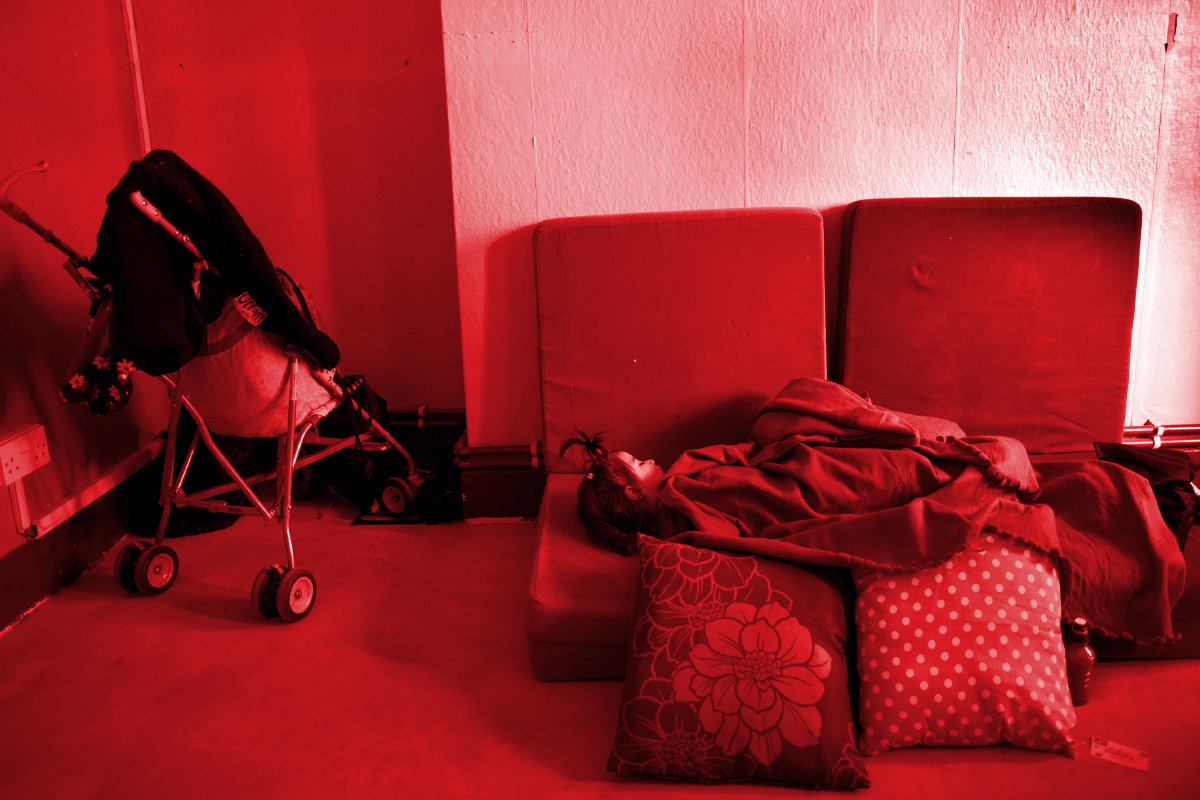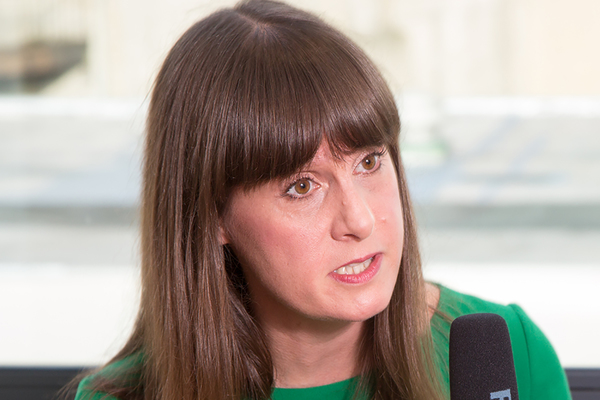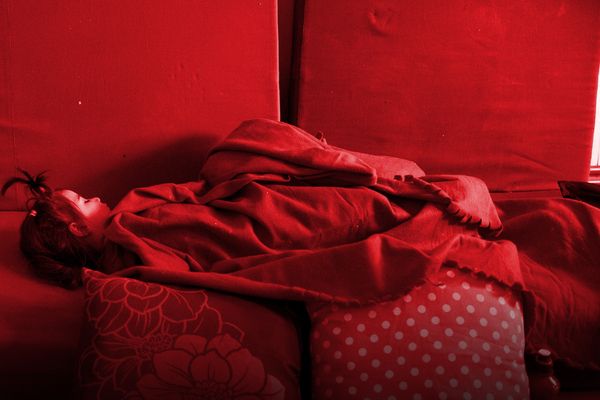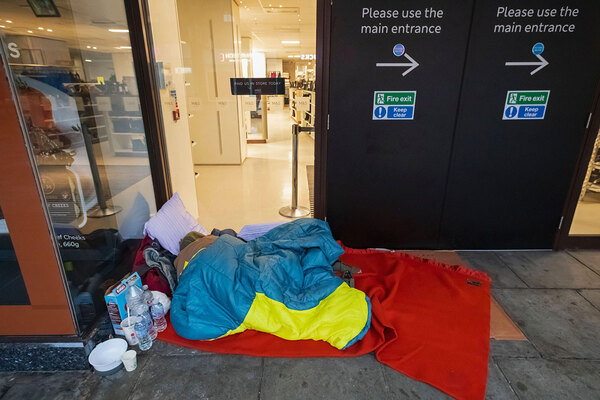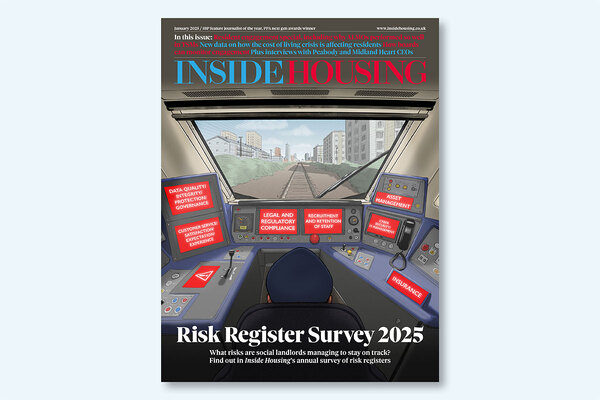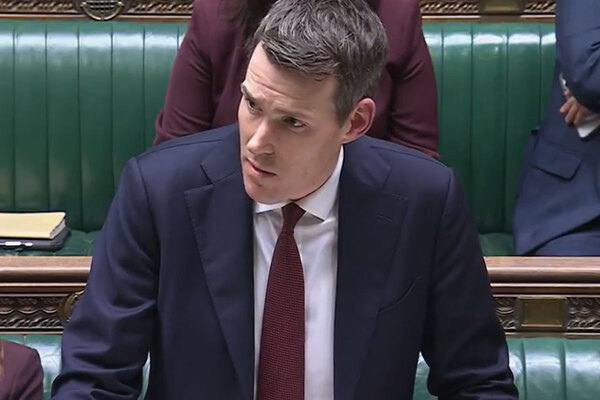You are viewing 1 of your 1 free articles
Starting to bite: how Universal Credit is making people homeless
New figures unearthed by Inside Housing suggest Universal Credit could be pushing more people into homelessness. Nathaniel Barker finds out why. Pictures by Alamy
Inside Housing Spotlight is a series of pieces showcasing the best of our investigative and data journalism.
It’s less than two weeks until Christmas.
You have always struggled to make ends meet, but since transferring to Universal Credit this year the bills have started to pile up.
You are now on a final warning from your landlord: pay the rent or you’re out.
And now, a repayment is due for a crisis loan you took out several years ago. Under the old benefit system, child tax credit would be coming in next week – but it is still the best part of a month until your next Universal Credit cheque.
"For the first time, Inside Housing has uncovered figures which suggest this debt is making people homeless"
The coffers are close to empty and you’re regretting buying those Christmas presents.
Soon, your landlord will act on their threat and you will have to declare your family homeless to the council.
A hypothetical example, yes, but real people around the UK will be facing very similar situations.
Universal Credit drags people deeper into debt.
That much has been evidenced by organisations including Citizens Advice, the Association of Retained Council Housing, the National Federation of ALMOs and the UK’s four housing association membership bodies.
But now, for the first time, Inside Housing has uncovered figures which suggest this debt is making people homeless.
Using Freedom of Information Act laws, we requested data on how many households presenting to their councils as homeless are on Universal Credit or housing benefit – which is part of the legacy welfare system. Many authorities were not able to provide the numbers, but we have obtained information about Universal Credit leaseholds in 42 areas and housing benefit households in another 31.
Since April this year, among the 42 Universal Credit areas, 4,940 households have declared themselves homeless to their council while claiming the benefit – out of 168,653 Universal Credit households.
In the other 31 areas over the same period, 3,600 households were receiving housing benefit at the point of presenting as homeless, out of 283,464 total claimants in these areas. In other words, roughly one in 34 Universal Credit households have become homeless this year, compared to one in 79 housing benefit households.
"This data is incomplete, but it suggests that council tenants on Universal Credit are well over twice as likely to be evicted as those claiming housing benefit"
These figures are approximate snapshots and should be treated with caution.
For instance, it’s important to remember that Universal Credit combines six different benefits of which housing benefit is one, so the comparison is not exact – and that the figures have not been weighted
to account for the many complex factors in homelessness.
However, the disparity is clearly stark. And there is further indication that Universal Credit is playing a role in homelessness.
Its impact on rent arrears has been widely reported. A BBC Panorama investigation last month found that the average amount owed by council tenants claiming Universal Credit is £662.56, while those on housing benefit are £262.50 in arrears.
Inside Housing also gathered data from stock-owning councils about evictions. Across 38 authorities with a combined 47,473 tenants claiming Universal Credit, 459 have been evicted in the past three years – a ratio of one to 103. In the same timeframe, another 39 councils with 147,478 tenants relying on housing benefit evicted 607 of these households – a much smaller ratio of one in 243.
Again, this data is incomplete, but it suggests that council tenants on Universal Credit are well over twice as likely to be evicted as those claiming housing benefit under the previous system. For these people, homelessness is often inevitable.
Sam Lister, policy and practice officer at the Chartered Institute of Housing, says Universal Credit can drive people into financial difficulty from which they may never extract themselves. “The problem with Universal Credit is that it’s paid in arrears with a five-week waiting period before your first payment,” he explains. “Although there are advance payments available, if there’s a dispute about your entitlement, you can’t get that payment until that issue has been decided.”
This means people with especially complex cases – who will often be the most vulnerable – could be put under intense budgeting pressure from the off. Alessy Beaver, co-ordinator of the Step Up programme at homelessness charity Thames Reach, agrees. “The main underlying problem is that these are people who are already vulnerable and Universal Credit is creating particular exposure because it’s such a complex process,” she says.
"Under Universal Credit, less frequent cash injections mean people are needing to budget over longer periods"
Even once a claim is processed, that pressure is not necessarily lifted.
“Universal Credit is falling victim to the fact that general levels of benefits are low anyway,” says Mr Lister. “Some of the problems are to do with the benefit levels being frozen since 2016 – which means the real value of your benefits is declining. That’s not specifically a Universal Credit design problem, but increasing budgeting pressures due to the payment in arrears and that waiting period mean the fact that benefit levels are generally inadequate comes into sharper focus under Universal Credit.”
The monthly nature of Universal Credit payments also plays a role, he adds. Under the legacy welfare system, different claims for different benefits meant varying flows of income from week to week, which “kind of does your budgeting for you”.
But under Universal Credit, less frequent cash injections mean people are needing to budget over longer periods – meaning that unexpected one-off expenses like replacing a broken fridge can have a bigger impact. And for people in non-salaried work, Ms Beaver adds, fluctuating pay cheques can significantly alter Universal Credit awards from month to month, making effective budgeting harder still.
What the figures show
1 in 34 approximate ratio of households claiming Universal Credit who have declared themselves homeless since April
1 in 79 approximate ratio of households claiming housing benefit who have declared themselves homeless since April
1 in 103 ratio of council tenants relying on Universal Credit who have been evicted in the past three years
1 in 243 ratio of council tenants relying on housing benefit who have been evicted in the past three years
1m number of households in the UK currently claiming Universal Credit
4m number of households expected to be on Universal Credit in four years' time
Source: Data released by councils under the Freedom of Information Act / government statistics
These are features intrinsic to Universal Credit’s design, and the problems they cause cannot be fixed by mere tinkering, including widely welcomed measures announced at the Autumn Budget such as new money for the transition process and higher work allowances for disabled people and families with children.
Among Universal Credit claimants declaring as homeless, councils held data indicating that around 6% had come from housing association tenancies, 5% from local authority tenancies and 26% from private tenancies – while the rest had either not come from stable accommodation or did not provide this information.
David Smith, policy director for the Residential Landlords Association, says private landlords are “reluctant to let to people on Universal Credit” because of fears they will not meet the rent. Its research in October found that 61% of landlords with tenants on Universal Credit have seen them go into rent arrears.
The complex nature of Universal Credit also puts landlords off, he adds: “Some private landlords are prepared to help people with their claims, but what is the benefit for them? It’s not like there’s a shortage of other tenants out there.”
But, as the figures on council evictions show, there is an emerging issue in the social housing sector, too. Anabel Palmer, community investment and care director at 27,000-home Southern Housing Group, sees a grave challenge on the horizon.
“We go all out to make sure that we don’t evict someone because they’re in Universal Credit arrears,” she says. “The minute anyone moves onto Universal Credit we immediately see if there’s anything we can do to help them. We’ve been managing it very tightly so we don’t have to take action to protect our income. But the full-on migration has not yet happened – and that’s when it’s going to get critical for councils and housing associations.”
“Evictions are a matter between tenants and landlords, and can occur for a wide range of reasons", DWP spokesperson
Southern supports its 1,500 Universal Credit tenants by offering one-on-one home visits, though Ms Palmer warns this will become much harder after that figure rises to 7,500, as is expected following managed migration. She says if the full roll-out of Universal Credit goes ahead in its current form, despite Southern’s extensive planning, the impact on the organisation’s revenues will be “significant”.
The Department for Work and Pensions says it does not recognise the figures about homelessness and Universal Credit obtained by Inside Housing. A spokesperson adds: “Evictions are a matter between tenants and landlords, and can occur for a wide range of reasons. Everyone deserves a safe and secure home, and with Universal Credit housing costs can
be paid directly to landlords if requested. We are rolling out the social landlord portal to support vulnerable claimants and since 2011 we have also provided around £1bn in Discretionary Housing Payments.”
Even if Universal Credit works for most claimants, it is difficult to shake the feeling that it fails those who need it most. Thames Reach’s Ms Beaver says she works with some people who are “just too vulnerable for Universal Credit”.
The government has insisted that Universal Credit is here to stay, while at the same time maintaining a commitment to slash homelessness. In time, ministers may be forced to decide which policy takes priority.
More on Universal Credit
A rock and a hard place: the Universal Credit frontline Universal Credit was meant to simplify the welfare system and give people control over their finances. But in one London borough,Gavriel Hollander finds the reality is very different.
Universal Credit: how we got here Inside Housing's Pete Apps traces the history of the government's flagship welfare reform
Starting to bite: how Universal Credit is making people homeless For the first time, Inside Housing has uncovered figures which suggest Universal Credit is making people homeless
Universal Credit needs universal co-operation As cracks in the consensus that Universal Credit is beneficial to claimants appear, the Department for Work and Pensions must co-operate with all partners to ensure the policy is a success, writes Eamon McGoldrick
Ministers need to open their eyes to the impact of Universal Credit Inside Housing editor Emma Maier calls for ministers to take notice of the problems affecting the government's key welfare reform
Universal Credit problems are much wider than just administrative issues As the full Universal Credit service rolls out to all postcode areas, Sam Lister outlines ways the policy could be improved
Inside Housing Spotlight
Inside Housing Spotlight is a series of pieces showcasing the best of our investigative and data journalism.
Spotlight pieces:
14 December 2018: Starting to bite - how Universal Credit is making people homeless: we reveal new figures showing a clear link between Universal Credit and homelessness
9 November 2018: First Priority - the inside story of a housing association which almost went bust When a small supported housing provider entered into a series of leasing deals with investment funds, it nearly spelled disaster for its vulnerable tenants. We investigate why.
12 October 2018: The ballad of Knowsley Housing Trust the inside story of the first housing association made non-compliant by the sector's watchdog for fire safety issues
13 September 2018: How tweaked building guidance led to combustible insulation on high rises: an investigation shows how lobbyists from the plastic insulation industry supported a quiet tweak to building guidance to permit combustible insulation on tall buildings
31 August 2018: The true cost of homelessness Freedom of Information requests reveal the soaring costs of temporary accommodation
30 August 2018: The forgotten threat to high rise tenants We investigate the threat posed by combustible window panels on social housing high rises
13 June 2018: The Biggest Ever Survey of Fire Risk Assessments Data journalism revealing widespread fire safety issues in more than 1,500 tower blocks across the country
12 April 2018: A Section 106 Story An investigation into allegations of "sham transactions" involving Section 106 deals in south London
23 March 2018: The Paper Trail: The Failure of Building Regulations A lengthy investigation into the failures of building regulation that may have contributed to the Grenfell Tower disaster, and the many missed warnings
23 February 2018: The Kingspan Papers Leaked meeting notes reveal some worrying issues, including allegations of fire safety report doctoring by manufacturers
9 February 2018: Gentoo: a Sunderland story We look back at the recent history of Sunderland’s largest housing association.
25 January 2018: Homeless families face long stays in council-owned hostels we reveal how councils in London are skirting the law by using hostels to house people in temporary accommodation for more than six weeks
7 December 2017: Council house to private rent We reveal the percentage of former Right to Buy homes in the private rented sector has passed 40%
17 November 2017: Rent to buy, or rent to rent? A look at how successful the government's Rent to Buy schemes have been
7 September 2017: Once upon a time in the west The history of KCTMO in the years before the Grenfell Tower fire
11 August: 2017 Grenfell: The paper trail - our news editor Pete Apps examines seven years of council documents to tell a story of the missed opportunites to prevent the Grenfell tragedy
4 August 2017 : Knowing the risks – the most common fire safety problems in tower blocks
26 May 2017: Rents hiked for RTB replacements – Sophie Barnes reveals less than half of Right to Buy replacement homes are for social rent
12 May 2017: A stark warning – a prescient piece looking at lessons to be learned from the Shepherds Bush tower block fire
13 April 2017: Where the axe will fall – a look at plans to axe housing benefit for younger people
10 Feb 2017: Circle of Despair – the inside story of Circle's repairs and maintenance troubles
3 Feb 2017: The Benefit Cap Tightrope – Sophie Barnes unveils the first exclusive analysis of the lower benefit cap
